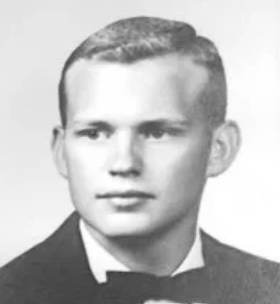A Celebration of Life for Norman Ray Bennett will be held at noon on Saturday, October 7, at Spring Creek Restaurant, 3623 Preston Road, in Frisco, TX.
He was a respected arbitrator who tried cases throughout the nation during most of his 58-year law career. Bennett died on June 9 in McKinney, TX, following a short illness. He was 83, having spent most of his life in Texas, considering Weatherford, TX, home. He was born there on Sept. 20, 1939.
He was a devout Christian and active in his Lord’s service at Stonebriar Community Church in Frisco. He was preceded in death by his father, Norman Mumford Bennett of Brock, TX and his mother, Nelwyn Oriole Bennett of Roanoke, TX. He is survived by his brother, David Bennett of McAllen, TX.
Fair-minded and strong-willed, he practiced labor law from the early 1980s until days prior to his death, his services in much demand. His was a life centered on Christian principles, and his arbitration skills settled hundreds of cases before they reached the courthouse.
A graduate of Cleburne High School, he was awarded the Bachelor of Science degree in business (1961) from Howard Payne University in Brownwood, where he served several years as a member of the HPU Board of Trustees. He was a 1964 graduate of Baylor University School of Law in Waco, TX, and a year later, the Master of Labor Law degree from New York University. In 1970, he earned the Bachelor of Business Administration Degree from what was then West Texas State University in Canyon, TX. He was licensed by the State Bar of Texas in 1965.
“He had a brilliant mind, traveling wherever necessary to conduct labor arbitration, a field where he was in constant demand,” observed Dr. Don Newbury, Chancellor of Howard Payne University. “He was my friend from our college days at Howard Payne, where we worked together on the college newspaper. He will be greatly missed.”
He was a talented athlete, playing baseball both in high school and college, and was a talented pianist, saxophonist and vocalist, admired and loved by those who knew him.
Upon reaching what most people think to be “retirement age,” he tried it for a few months, declared it overrated, and went back to his arbitration practice for two additional decades. He had no later thoughts of retiring, choosing to continue service in his profession and in his church.
